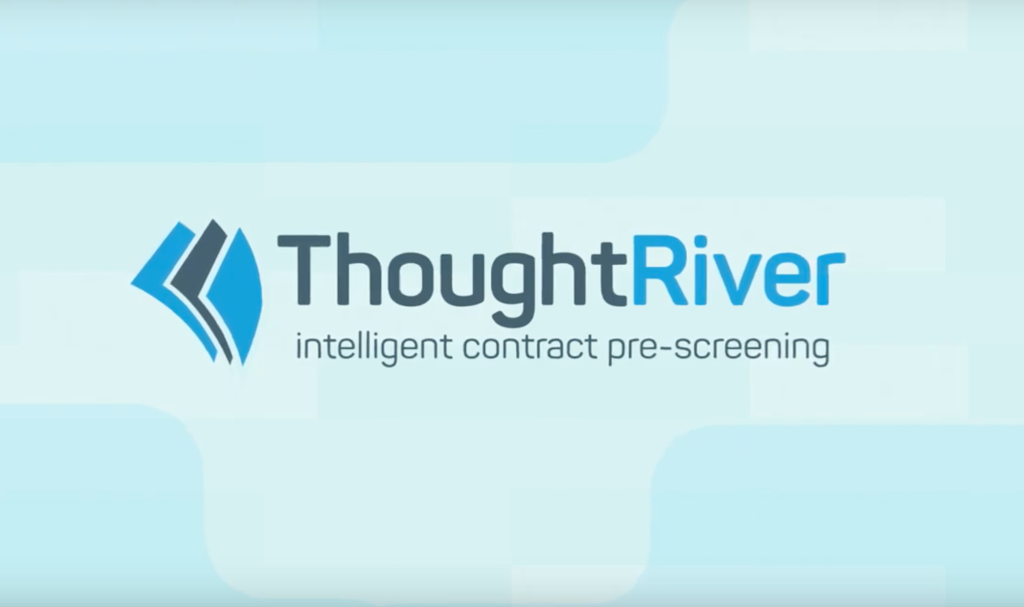
How a universal contract language puts lawyers in control
By Lachlan Harrison-Smith – Senior Lawyer, Head of Lexible Framework at ThoughtRiver
The adoption of innovative contract pre-screening technology offers transformative opportunities to law firms and general counsel alike.
In today’s climate, the information tools a business adopts are intrinsically linked with its success. Only by demonstrating their use of the most powerful technology can managers expect to:
- Attract and retain top talent
- Offer more than their competitors
- Exceed clients’ expectations
- And, most importantly, grow the business in a profitable way
For too long, technology has played a minor role in law firms. But this is changing at a rapid pace. In particular in the bread-and-butter work of corporate lawyers, approving and reviewing contracts.
This revolution is long overdue. Every contract ever agreed performs the same basic task: it asserts the rights and duties of the parties in a way that can be enforceable should the need arise. So why, in the modern business world, do contracts exist that are barely penetrable, with length and complexity in inverse ratio to the matter’s importance?
The glib answer that ‘because our lawyers insist on it that way’ is both tedious and insulting to legal professionals. It is also incorrect. Contracts are the way they are because they are drawn up with a methodology that has changed little in essence for a millennium; it is still an analogue story-telling process.
The frustrations and expense of dealing with a corpus of contracts in an organisation of any size are well known. All too often, lawyers have to focus on the here and now, getting daily tasks ticked off. There is precious little time to add additional value or to be strategic.
Deconstructing contracts
Futurologists tell us that all this will change with the advent of self-executing ‘smart’ contracts enabled by blockchain. Perhaps. But before we automate the process of executing contracts, we need absolute clarity about what such contracts are trying to achieve.
For that, we need to look at the existing corpus of contracts in a new way: to get behind the words and into their meaning; in short to construct a new universal language of contracting. This language must not be based on some theoretical ideal, but on the existing legacy of contracts, reflecting the work of generations of careful professionals.
Fortunately, the tools for doing this are becoming available, with a sound immediate business case for their adoption. We are talking about breakthroughs in software capable of learning by experience and communicating in natural language, a combination known popularly, though arguably misleadingly, as artificial intelligence (AI).
The vital breakthrough is that these systems break an old golden rule of computing, the one that says you can never get more out of a system than you have programmed in. Machine learning systems are not programmed to derive specific ‘if…then’ outputs but to draw their own conclusions from vast amounts of data.
In the words of Oxford professor Marcus Du Sautoy such systems ‘allow algorithms to roam the digital landscape and learn just as a child does. Today’s code created by machine learning is making surprisingly insightful moves, spotting previously undiscovered features in medical images, and investing in shrewd trades on the stock market’.
Or, indeed, to examine thousands of contracts held by an enterprise to identify underlying meanings – and hence where the risks and opportunities lie.
The value of automated contract pre-screening
A growing number of in-house legal departments and external providers of legal services are demonstrating the value of this technology to review contracts for potential issues in light of a change of circumstances or legislation.
The obvious business case is to reduce risk by ensuring contracts are reviewed consistently while empowering lawyers by giving them more control of their time – to focus on issues that really matter, or add value to the enterprise, rather than fire-fighting.
But more efficient contract screening is only the start of the journey. By examining the corpus in this systematic way, machine learning systems are creating knowledge. Including, for the first time, a consistent language of understanding contracts. At ThoughtRiver we call it Lexible.
Leveraging Lexible as a revenue stream
The Lexible framework is developed by experienced lawyers. The framework has been designed to be capable of describing any contract; it is just a matter of writing and then training the right questions onto the Lexible framework.
Think of it as a building block to allow AI tools to extract critical information from contracts with much greater speed and accuracy than a manual review.
Already today, Lexible enables ThoughtRiver’s AI to:
- Ask and answer thousands of legal questions of an agreement
- Be extended to ask a question of any agreement type
- Be trained to identify the specific obligations and rights in any agreement that are most important to your business
- Assess each contract consistently and extremely quickly
- Share output data immediately with relevant stakeholders
- Remove lengthy, low value manual tasks
- Allow pre-screen (first pass review) of contracts in minutes, not hours
- Drive a detailed risk report with recommended next steps to the business
The end result of this is a transformation in the life of in-house legal professionals by utilising ThoughtRiver to expertly and securely pre-screen contracts in minutes, giving valuable time back to the lawyers.
Lexible authoring
Lexible comes ‘out of the box’ with hundreds of authored and trained data points (properties). But, even more excitingly, it now offers the ability for firms to author and train their own users to build their own properties.
The current Lexible suite of tools includes Lexible Studio, which allows law firms to become Lexible authors and create their own intellectual property (properties on Lexible). By partnering with ThoughtRiver, firms can extend the Lexible framework to cover their area of speciality.
The properties they author are treated as their own intellectual property, which can be licensed out to clients and other law firms. In this manner, firms can use Lexible to create new and important revenue streams; streams that are predictable and recurring.
For example, Taylor Vinters is developing risk playbooks within ThoughtRiver for certain contract types. All of ThoughtRiver’s users are able to use these premium risk policies when reviewing contracts and Taylor Vinters gets commission based on usage.
We are not saying that ThoughtRiver, or any other AI solution, is going to replace a human lawyer anytime soon. Neither is it dictating how a contract such as an NDA should be structured: it merely maps what lawyers are already doing, in a standard way that can be shared as required. By adopting standards, users can be confident that they don’t have to reinvent the wheel. A standard description language also encourages lawyers to think about how they review contracts in a more logical manner, for example to think through how they want to look for specific issues.
Lexible is a tool that enables strategic thinking about what sort of a firm you want to be: for your clients and colleagues. By becoming more efficient you are more valuable to your clients, giving them speed to market and maximizing revenue streams – or alerting them of risk and enabling them to take action as necessary.
At ThoughtRiver we believe that by digitising the world’s contracts we can help businesses and individuals contract with each other more simply and efficiently. Ultimately we will have a standard core system so that lawyers can focus on genuinely legal questions. Which is, after all, what they trained for (and at a high cost).
Want to see how Lexible could transform your service delivery? Download our new playbook to learn more.
Access your playbook: here.
Or, to book a demo, please click here.
—
[Artificial Lawyer is proud to bring you this sponsored thought leadership article by ThoughtRiver.]
